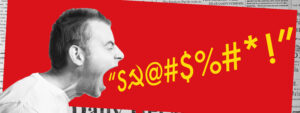
Women in hip-hop must be great lyricists, better than men in many aspects—sexy, beautiful and yet aggressive. Nicki Minaj is one of the few female faces in the mainstream rap scene today, the first female artist signed to the Young Money record label. Minaj has never openly admitted to being a feminist, but her lyrics suggest she has some serious feelings about “girl power.” To me, Minaj does represent a feminist voice in rap, a genre notorious for spreading misogynist messages.
Nicki Minaj is a trailblazer—her songs range in a variety of topics that include love, sex, self-reflection, ego boosting and theatrics. Her “Minajasty” infuses sex with power through control of her brand (many artists use “branding” to make their music distinctive), lyrics, song selections and outrageous fashion choices. Minaj uses rhetorical devices common to female rappers as of late—sexual lyrics with a masculine aggressive approach. Undoubtedly female rappers feel obligated to use this rhetoric within a male-dominated arena.
Yet, Minaj does something different with this reappropriation of the masculine approach. For example, on her feature with Southern rapper Gucci Mane, titled “Failure,” she uses the male rhetoric in her favor. The chorus of the song compares calls men that don’t measure up “pussies,” therefore equating “pussies” with failure.(Thanks Gucci Mane, for letting women knows we suck!) But Nicki strays from the woman bashing, praising her pussy for it’s beauty, amazing-ness, flavor and overall just celebrating femininity within hip-hop.
Minaj held her own and spazzed out on her song with Eminem, “Roman’s Revenge.” Once again, Nicki addressed the gender binary and gender biases with: “I am not Jasmine, I am Aladdin.”
Nicki states in this verse her role: Active. Minaj will not just be a standby by princes—she will be the hero in her story. But, she still uses a male role to gain control of her own destiny. For Minaj, using male rhetoric, male voice and multiple personalities proves valid.
I believe Nicki Minaj is a feminist. There is something powerful about a Black woman running her own business, penning her own lyrics, contacting producers and engineers—all shown on the MTV documentary about Minaj, My Time Now. In the documentary, she spoke directly to the double standard held within Hip-Hop as well as sexism in general:
“When I am assertive, I’m a bitch. When a man is assertive, he’s a boss. He bossed up. No negative connotation behind ‘bossed up.’But lots of negative connotation behind being a bitch. Donald Trump can say, ‘You’re fired.’ Let Martha Stewart run her company the same way and be the same way. [People will say] ‘F—ing old evil bitch!’ But Donald Trump, he gets to hang out with young bitches and have 50 different wives and just be cool. ‘Oh, Donald, we love you, Donald Trump!’”
Within hip-hop, men are allowed to run companies and women are allowed to be the first lady of a label. You see the difference?
Minaj has survived in a male-dominated world filled with misogynistic rhetoric, creating her own lane within Hip-Hop through her creative creation of alter-egos and alternate personalities. Although her “Nicki” persona does somewhat mirror the traditional male rap voice—hateful, aggressive, cocky—her inventive combination of personas has given her the ability to transcend her rap game and be seen as an artist. Her rap rhetoric is ever-changing from inspirational to storytelling to playful. Minaj hasn’t just joined the boys club—she’s surpassed them at their own game.
Check out her most recent music video, ‘Moment 4 Life (Clean Version) ft. Drake,’ below:
My personal pick: Nicki Minaj shows diversity in her SNL debut. She appears even creepier than the Lonely Island members, which is wonderful:


